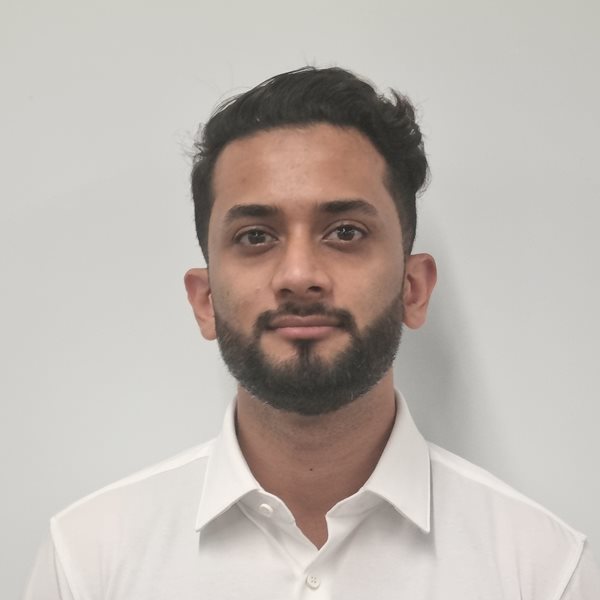
Name: Qasim Khanani
Programme and graduation year: MPA Class of 2023
Nationality: Pakistani - Canadian
Congratulations on your recent graduation from the LSE Master of Public Administration (MPA) programme! How does it feel to be a MPA graduate?
Relieved. The intellectual rigour at LSE is intense and after two years, it feels good to be able to take a break! There are feelings of satisfaction and gratitude as well. I no longer have the feelings of imposter syndrome which were present at the start of this program. I am a LSE MPA graduate!
What have been your key takeaways from your studies and how are you applying these in your future plans?
There are too many to list. The main ones are:
1) Understanding how to communicate technical knowledge in an easy to comprehend manner
2) Using the opportunity to be around academics, experts and practitioners to learn how to carry myself in society
3) Learning how to think analytically and ask the hard questions. For example, now if I hear someone quote a study, I am always inclined to analyse how it was conducted and what methodologies were adopted in order to test its validity.
4) from a personal point of view, I think I have become addicted to working in intellectually stimulating environments and want to continue to build upon this.
I believe everything mentioned above is applicable in my practical life. I now have a subtle confidence about myself and am open to taking on new challenging projects.
Can you tell us a bit about your background and your motivation for your studies?
My background is a business degree which wasn’t giving me the sense of fulfilment which I was craving.
I was fortunate enough to start working with the UNDP and was fascinated by the work being done by the personnel there, particularly those from LSE.
I realized that becoming a pure economist might be too late now, so the best option was to find something in the middle of specialist and generalist and I came across the MPA at LSE.
It’s a perfect blend of quantitative and qualitative skill and teaches you all the necessary skills needed to thrive in a professional environment.
What do you think are the main benefits from studying a two year masters programme?
Firstly, if you’re not coming from LSE, the first year is largely focused on understanding the system of LSE and learning all the tips and tricks needed to survive such as how to study, when to do the readings, how to take exams. Also, there is limited course selection available. Therefore, it’s hard to maximize your experience.
The second year allows you to specialize yourself in a programme field according to your choice. Courses become more interesting as you have more autonomy in choosing them, your friendships become deeper, you know the system better and by the end of the programme you feel the transformational aspect of it.
Can you tell us about your Capstone Project and what you learnt from the experience?
My capstone project was working with the city of Cape Town in devising a holistic crime strategy.
My group members came from different backgrounds and different fields, so I was able to learn a lot from them in how to approach problems, what methodologies to use. I also gained knowledge about a new topic such as crime.
I also learnt how to better work within a team. While we all have experience in group projects, this is a bit different as our project is more than just an academic paper as it is being used by a client.
Having the real-world simulation better prepares us to work within a team.
How did you make the most of being a part of the LSE community during your studies?
It’s about understanding what you want and working towards it.
My main focus was developing an economic mindset and developing myself intellectually. Hence, what I did was actively go to office hours, not be afraid to ask questions, take difficult courses.
For extra curriculars, I was part of the varsity Muay Thai team and had daily practice which kept me busy and allowed me to socialize.
What are your highlights from your time with your classmates?
LSE SPP is truly multicultural in a sense that everyone is from different nationalities. Having such a multicultural environment exposes you to different ways of thinking not just professionally but personally as well.
Therefore, one of the major highlights is discussing with my class-mates on how we view life.
Who would you recommend the programme to?
This programme is for everyone regardless of their previous academic background. Primarily this program is for anyone who holds a passion of serving others but the transferable skills learnt here are applicable in almost any sector.
What advice would you give to people who are considering studying the MPA?
Be yourself, ask the difficult questions and don’t be shy to express any doubts you may be having either personally or academically.
It’s a learning process and hopefully by the end of the two years it would have been a worth-while experience for you.
Do you have any practical advice or top tips for our new MPA students?
Don’t be shy to take quantitative heavy courses. Personally, for me I failed grade 12 math 3 times and had severe math anxiety. If I can get through it, so can you!
Just go to office hours regularly, pay attention in class and you’ll get through it.
Qasim is happy to connect on LinkedIn.